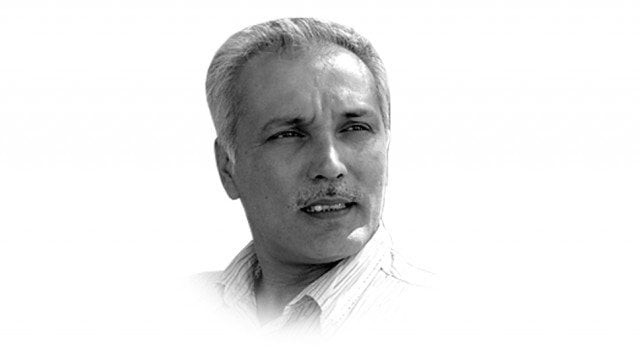Where the real rot lies

Where the real rot lies
The government here remains heavily committed in Pakistan. From counter-terrorism to de-radicalisation measures to development in the fields of education and income generation initiatives, it is likely to increase rather than decrease its political and financial commitment to Pakistan over the next few years irrespective of its own fiscal worries.
This should be good news for Pakistan. But for some reason, every time I meet a British government official or politician I am reminded of a meeting General Pervez Musharraf held with Pakistani media leaders soon after taking charge of the country.
We were still a few months away from 9/11 and the world had not yet changed. The Economist had greeted General Musharraf's coup with a cover story titled “Oh, Pakistan!” They couldn't have come up with a more appropriate title to express the world's despair at us. There was talk of General Musharraf's coup pushing Pakistan into international isolation.
The purpose of the meeting was clearly for the General to convince us that Pakistan did not risk international isolation because of his coup and here is how he went about it: strategically, he said, Pakistan was one of the most important countries in the world for the following reasons: it was the only nuclear armed nation in the world. It was engaged in a war of attrition with India, another nuclear armed country. It was the mentor of the Taliban who were the key to peace in Afghanistan. It was one of the world's major heroin trafficking routes to the West.
No matter which way you look at it, he concluded smugly, the world could only ignore Pakistan at its own peril, irrespective of whether it was a democrat or a dictator ruling the country.
In a gathering of more than 30 editors, only one had the courage to ask if all these weren't the wrong reasons for the world's interest in Pakistan. The General just smiled, saying that certain strategic matters must be left to him as he knew things that we had no idea of.
The Brits can perhaps never be as blunt as a Pakistani general. But behind their carefully chosen words, one can sense a deep sense of unease at the direction Pakistan has taken of late. When they say they remain deeply interested in and committed to Pakistan, it is easy to strip their words of political correctness and see that what they actually mean is that they are desperately worried about us. Perhaps more now than ever before.
The reasons aren't hard to understand. The military operation in the tribal areas seems to be going around in circles than getting anywhere. From South Waziristan, it moved to Orakzai and has now reached Mohmand.
Where bombers and their mentors were previously satisfied with just hitting the cities, they have now started to taunt the government. How else can you explain the Taliban offer of forensic assistance to the Punjab government to unveil the perpetrators of the Data Darbar bombing?
In their latest statement issued to the press, they say if the Punjab government agrees to work with them, they will send a team of “forensic, explosives and counter-terrorism experts” to Lahore which will prove that the last few attacks in Punjab were actually planned and executed by agencies such as Blackwater, XE, and (you would probably have guessed it by now) Rehman Malik.
It could be that the world's worry is not about what is actually happening in Pakistan. Perhaps it is worried that there may be elements within the Pakistani officialdom who may be willing to consider such cynical offers.
Just as General Musharraf believed that it was fine to be the focus of the world's attention for all the wrong reasons. The real rot, perhaps, lies in that mindset.
Published in The Express Tribune, July 11th, 2010.















COMMENTS
Comments are moderated and generally will be posted if they are on-topic and not abusive.
For more information, please see our Comments FAQ